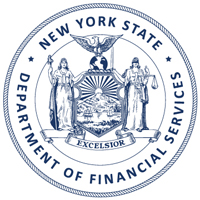
One of Britain's largest international banking firms, Standard Chartered Bank (SCB), faces a major overhaul in activities it offers its Asian client base. The move comes after the New York State Department of Financial Services (DFS) found the bank guilty of compliance failures. As a result, the bank has suspended its dollar-denominated Clearing facilities for certain clients, in addition the bank is to pay a substantial financial penalty.
The case follows on from an earlier investigation two years ago, into SCB and its dealings with Iran, the New York State Department accused the bank of meddling in transactions worth $250 billion with the sanctioned nation.
In the current case, the state authority outlines the details of the Order, stating that SCB will suspend dollar-clearing through its New York Branch for high-risk retail business clients at its SCB Hong Kong subsidiary; exit high-risk client relationships within certain business lines at its branches in the United Arab Emirates. In addition, the bank will not accept new dollar-clearing clients or accounts across its operations without prior approval from DFS. Adding salt to the bank’s wounds, it has been ordered to pay a $300 million penalty.
The case has been spearheaded by Superintendent Benjamin M. Lawsky, a qualified lawyer, who commented about the latest findings in a statement, "If a bank fails to live up to its commitments, there should be consequences. That is particularly true in an area as serious as anti-Money Laundering compliance, which is vital to helping prevent terrorism and vile human rights abuses."
The post-2012 investigation led the New York State Department of Financial Services to extend its initial investigation of the organization by installing a dedicated team at the bank. The unit's independent monitoring division uncovered the latest spree of breaches. The authority states in the Order that the SCB's compliance remediation failures were uncovered by DFS' independent monitor, which the Department installed at Standard Chartered as part of the 2012 agreement.

Benjamin Lawsky
The DFS monitor's review of Standard Chartered's transaction monitoring systems found that the bank had failed to detect a large number of potentially high-risk transactions for further review. A significant amount of the potentially high-risk transactions the system failed to detect originated from its Hong Kong subsidiary (SCB Hong Kong) and SCB's branches in the United Arab Emirates (SCB UAE), among others.
The UAE is home to over 600,000 people of Iranian origin, with significant business dealings between the two countries, despite Iran being under sanctions. The latest mishap by SCB adds to the negative and uncertain sentiment among global investors with the banking and financial markets structure.
Asia is a key market for the British origin bank and the current restrictions are expected to affect the bank's domestic client base.
SCB responded in a corporate statement issued on its website, saying: “The Group accepts responsibility for and regrets the deficiencies in the anti-money laundering transaction surveillance system at its New York branch. The Group has already begun extensive remediation efforts and is committed to completing these with utmost urgency. More broadly, the Group is committed to enhancing its effectiveness in the fight against financial crime, and in this context, has committed substantial resources to a multi-year Financial Crime Risk Mitigation Programme.”













